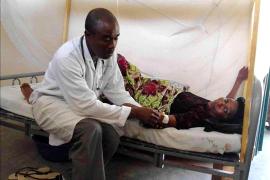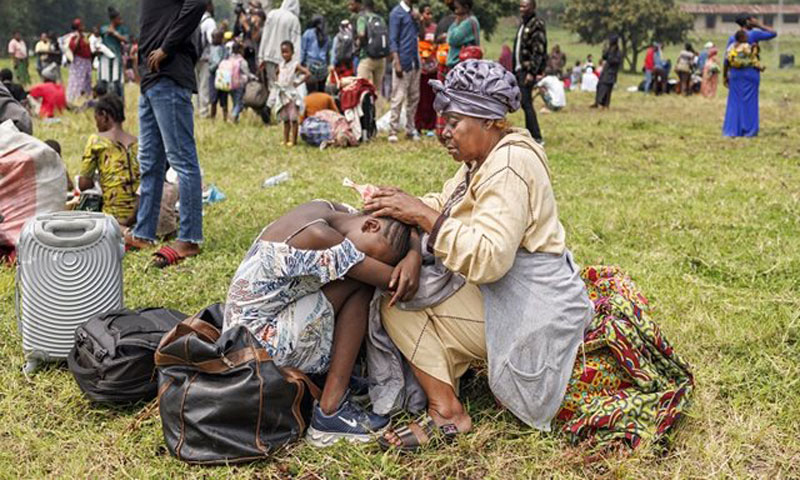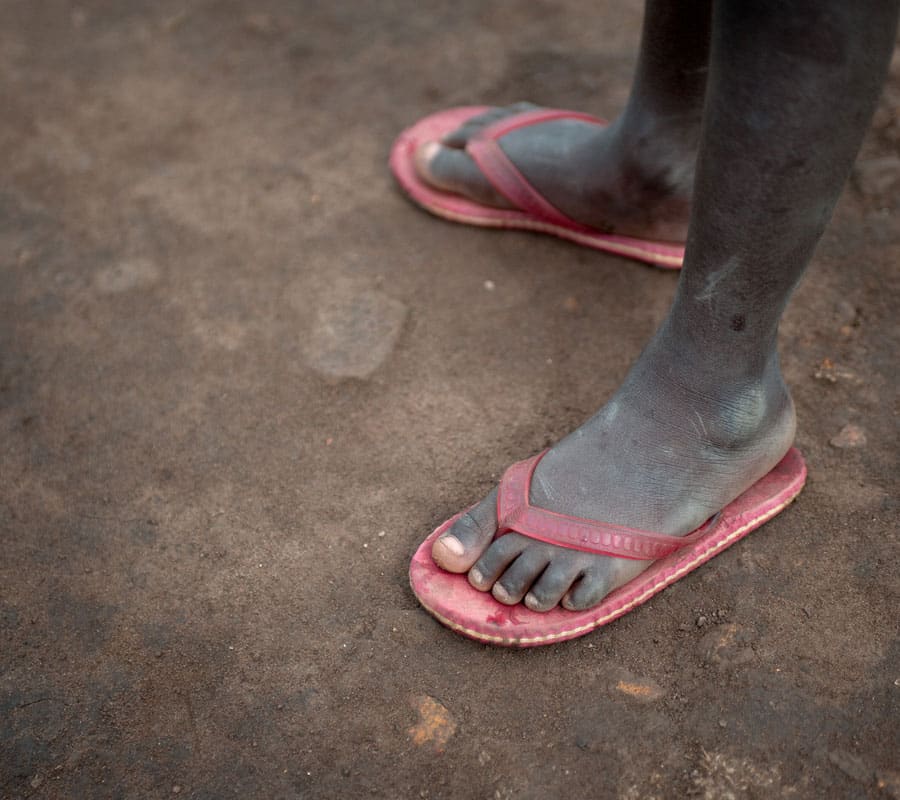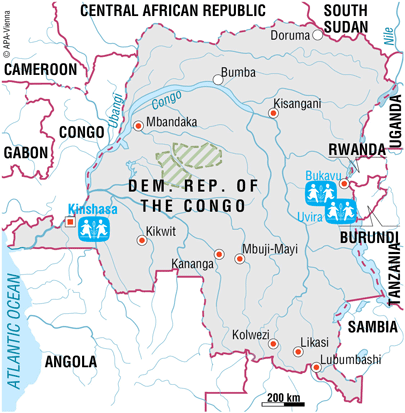
Vi er i Congo, Democratic Republic
Rich in natural resources but lacking stability
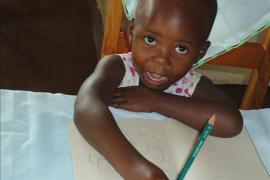
SOS Children's Villages provides education to children who would otherwise not have access to it. (photo: SOS archives)
Joseph Mobutu seized power in a military coup in 1965 and changed the country's name from "Republic of the Congo" to Zaire. In 1997, Mobutu's regime was overthrown by a rebellion and the country's name was changed again – this time to "Democratic Republic of the Congo". The DRC has remained politically unstable, as conflict and human rights abuses continue.
Violence does not abate: thousands of civilians tortured, murdered and displaced
Millions of civilians lost their lives in an intense armed conflict that reached its peak between 1998 and 2003. Thousands of women were raped and countless acts of torture against men, women and children were reported by international observers and organisations.
Although the international community has been trying to help, diseases, hunger and war continue to claim the lives of many. As of December 2010, around 1.6 million people in the DRC faced internal displacement. The main causes of displacement are inter-ethnic clashes, military operations of armed groups, the illegal exploitation of resources, and natural disasters such as earthquakes, floods and fires.
Severe food shortages and devastating hunger mark the lives of many; 75 per cent of the population are severely undernourished. Millions do not have access to medical infrastructure. They lack decent housing, potable water and proper sanitation systems.
Severe food shortages and devastating hunger mark the lives of many; 75 per cent of the population are severely undernourished. Millions do not have access to medical infrastructure. They lack decent housing, potable water and proper sanitation systems.
Cholera and other major diseases such as hepatitis A, malaria and typhoid fever continue to affect the lives of many. Life expectancy at birth is only 48 years. DRC is constantly among the ten lowest ranked states by the United Nations Human Development Index.
Children in urgent need of protection
Children are clearly the most vulnerable group of population in the DRC. Although the international community has been trying to intervene, recruitment of children for the country's armed conflict by all parties involved is systematic and widespread, and the DRC has one of the largest numbers of child soldiers in Africa. They are trained to kill and torture and never get to experience true childhood.
Thousands of Congolese families have been separated as a result of the armed conflict. The DRC is also a source and destination country for children subjected to forced labour and commercial sex work. There have been reports about Congolese girls who are forcibly prostituted in tent- or hut-based brothels.Lack of knowledge, the poor health system, and the lack of medical staff, infrastructure and equipment further worsens living conditions. The physical and mental development of a child is often seriously impaired by chronic undernourishment.
SOS Children's Villages in the Democratic Republic of the Congo
The activities of SOS Children's Villages in the Democratic Republic of the Congo began in the 1980s, when the country was still known as "Zaire". The first location where we became active was Bukavu, in the eastern part of the country. In 1996, during the country's bitter civil war, SOS Children's Village in Bukavu was briefly occupied by the armed forces. Responding to continuing unrest in the region, our organisation started working in Uvira, where we predominantly supported children who had lost their parents in the armed conflict.
Since 2004, SOS Children's Villages has also been operating SOS Family Strengthening Programmes, aiming to enable children who are at risk of losing the care of their family to grow within a caring family environment. To achieve this, SOS Children's Villages works directly with families and communities to empower them to effectively protect and care for their children.
Since 2004, SOS Children's Villages has also been operating SOS Family Strengthening Programmes, aiming to enable children who are at risk of losing the care of their family to grow within a caring family environment. To achieve this, SOS Children's Villages works directly with families and communities to empower them to effectively protect and care for their children.
At present, our organisation is supporting Congolese children and young people in three different locations by providing day care, education, vocational training and medical assistance. Children whose families cannot take care of them can find a loving home in one of the SOS families.
